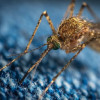
 IJCP Editorial Team
IJCP Editorial Team
Can Vitamin D, Vitamin B12, Omega 3 Help in Fighting PCOS
Polycystic Ovary Syndrome (PCOS) is a condition primarily affecting women of reproductive age, characterized by varied symptoms like acne, facial hair growth, hair loss, mood swings, irregular periods, fertility issues, and weight gain. Insulin resistance and hormonal imbalances are the key factors contributing to PCOS, making lifestyle modifications the initial approach to managing this condition.
Ritika Samaddar, Regional Head - South Zone, Dietetics, Nutrition and Dietetics at Max Super Speciality Hospital, Saket, advises that certain supplements, including Vitamin D, Omega-3, Inositol, and Vitamin B12, have the potential to enhance insulin sensitivity.
Dietary recommendations and exercise guidelines advisable for individuals with PCOS are:
• Lowering refined carbohydrates consumption
• Following a regular and high-intensity exercise regime
• Prioritizing protein intake
• Choosing only healthy fats – switching to monounsaturated fatty acids (MUFA), the sources are: nuts, seeds, and olives, and omega-3 fatty acids from almonds, salmon, and tuna
• Limiting saturated fatty acids (SFA) and trans fats (TFA)
• Increasing dietary fiber intake – through fruits, vegetables, millets, legumes, and fiber-rich cereals intake
• Opting for nutritional supplements in case of a deficiency – such as Vitamin D, Omega-3, Inositol, and Vitamin B12 enhance insulin sensitivity, hormone balance, and menstrual regularity.
Why is protein intake vital in PCOS?
Consuming sufficient protein aids in satiety and improves insulin sensitivity. Individuals with PCOS should be recommended to take nearly 15-20% of their total calorie intake as proteins. Eggs are particularly beneficial for PCOS management as they are rich in protein and essential micronutrients like calcium, biotin, vitamin D, and selenium.
Individuals with PCOS can effectively manage their symptoms and enhance their overall well-being by making informed dietary choices, incorporating regular exercise, and considering suitable supplements. Healthcare professionals and registered dietitians can customize such interventions and plan a lifestyle guide based on the individual’s dietary habits, requirements, and health status.

IJCP Editorial Team
Comprising seasoned professionals and experts from the medical field, the IJCP editorial team is dedicated to delivering timely and accurate content and thriving to provide attention-grabbing information for the readers. What sets them apart are their diverse expertise, spanning academia, research, and clinical practice, and their dedication to upholding the highest standards of quality and integrity. With a wealth of experience and a commitment to excellence, the IJCP editorial team strives to provide valuable perspectives, the latest trends, and in-depth analyses across various medical domains, all in a way that keeps you interested and engaged.















Please login to comment on this article